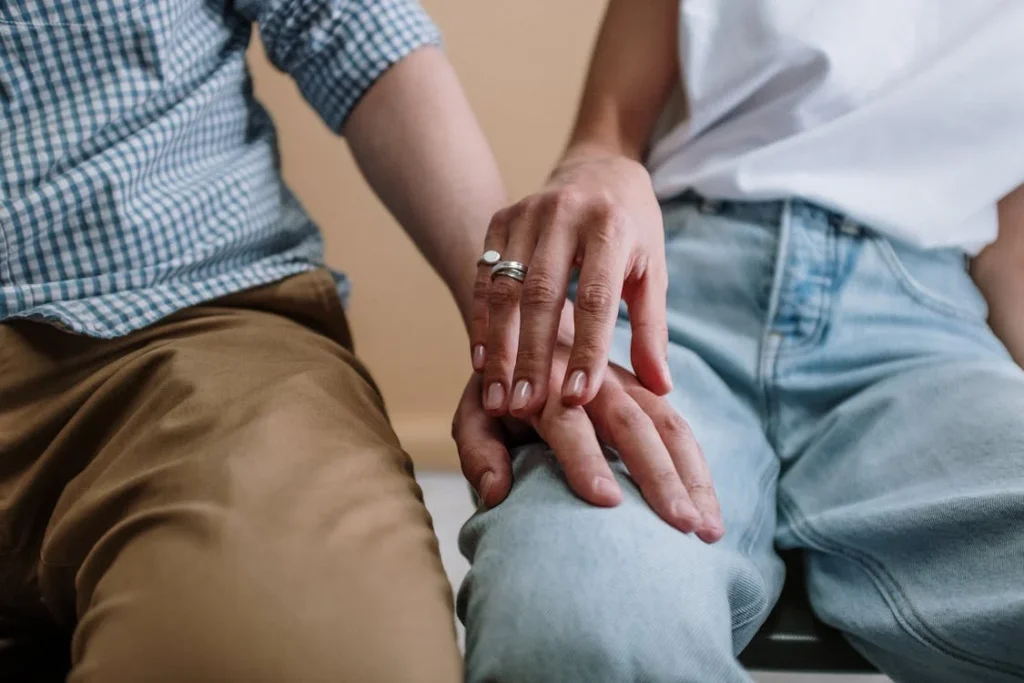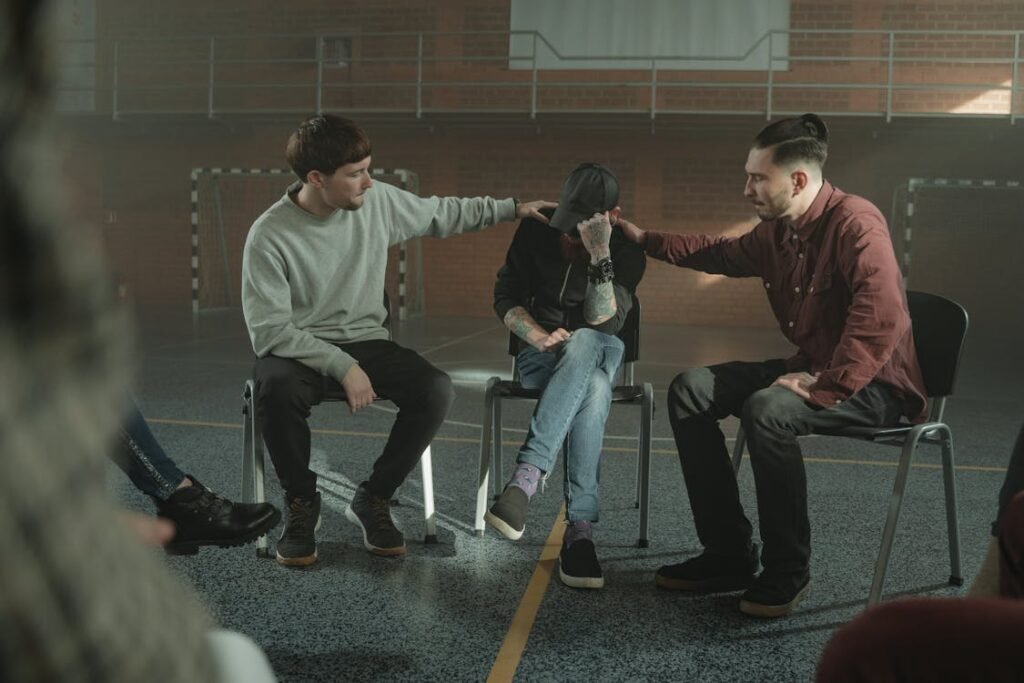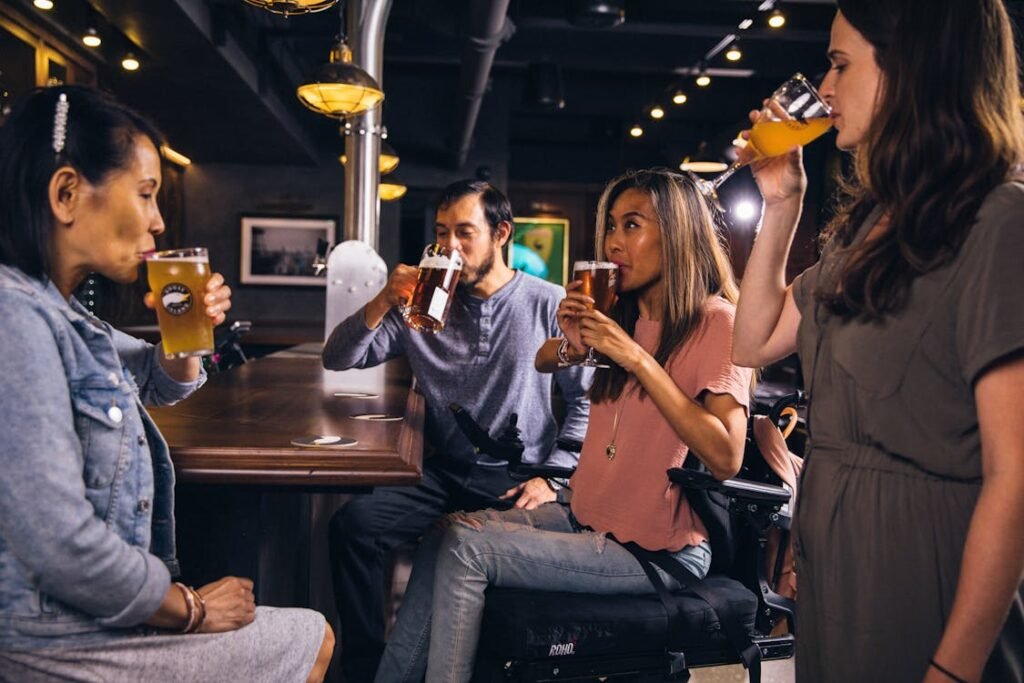When a loved one experiences an amputation, the entire family is affected. The emotional, mental, and physical adjustments can feel overwhelming, and supporting an amputee through recovery requires understanding, patience, and access to the right resources. Families often struggle with feelings of uncertainty, fear, and even helplessness as they try to navigate this new reality.
While medical care and prosthetic solutions help restore mobility, emotional well-being is just as important. Families need guidance, reassurance, and access to support systems that can help them cope with the changes ahead. Emotional support is not just for the amputee—it is for their loved ones as well, as they play a crucial role in the recovery journey.

Understanding the Emotional Impact on Families
When a family member undergoes an amputation, it is not just their life that changes—the entire family must adjust to a new reality. The emotional impact can be profound, bringing feelings of fear, sadness, frustration, and even guilt.
It is natural for family members to struggle with uncertainty about the future, worry about their loved one’s well-being, and feel unprepared for the challenges ahead.
Coping with the Initial Shock
The period immediately after an amputation can be overwhelming. Family members may experience a mix of emotions, from sadness and grief to confusion and anxiety.
Some may feel helpless, unsure of how to provide the right kind of support. Others may feel guilty for their own emotions, thinking they should be strong when, in reality, they are also experiencing loss.
It is important to acknowledge these feelings instead of suppressing them. Amputation is a major life change, and emotions will be complex.
Seeking professional counseling or peer support groups can provide a safe space to express these emotions and gain reassurance. Families should also remind themselves that adjusting to a new reality takes time, and it is okay to feel vulnerable during the process.
Adapting to Changes in Daily Life
Daily routines shift dramatically when a loved one loses a limb. Tasks that were once simple, such as getting dressed, moving around the house, or performing household chores, may now require extra effort, patience, and adaptation.
Family members often take on new roles, whether as caregivers, emotional supporters, or motivators, which can be mentally and physically exhausting.
It is important to establish a balance between providing support and encouraging independence. While it may be tempting to step in and do everything for the amputee, allowing them to regain control over their daily activities helps rebuild confidence.
Small victories, such as learning to walk with a prosthetic or performing basic tasks independently, should be celebrated to reinforce progress and motivation.
Dealing with Emotional Highs and Lows
Recovery is not a linear process. Some days will feel hopeful, while others may feel frustrating. It is common for amputees to experience mood swings, emotional outbursts, or moments of despair.
As a family member, this can be difficult to witness. The key is to offer patience and reassurance, reminding your loved one that progress takes time.
There may also be moments when family members themselves feel drained or emotionally exhausted. It is crucial to recognize that supporting someone does not mean neglecting your own mental health.
Taking breaks, seeking counseling, or joining a support group can help ease the emotional strain and prevent burnout.
The emotional journey of amputation recovery is one of adaptation, resilience, and hope. Families play an essential role in this journey, offering the love, encouragement, and emotional stability that help amputees regain confidence in their new reality.

Building a Strong Support System for Families
No family should go through the amputation journey alone. A strong support system is essential, not only for the amputee but also for their loved ones.
Emotional, psychological, and even financial stress can feel overwhelming, but having a network of people to lean on makes a significant difference. Support can come from many places—friends, extended family, community groups, therapists, and peer networks.
The Role of Family and Close Friends
The immediate family plays the most active role in the recovery process. They provide daily encouragement, physical assistance, and emotional support, but they also face their own challenges.
It is important for family members to maintain open communication and realistic expectations about what their loved one can and cannot do during different stages of recovery.
Friends can also be a valuable source of comfort, offering companionship and emotional relief when family members need a break.
Encouraging social interaction helps prevent feelings of isolation, reminding the amputee that they are still part of their community.
Sometimes, a simple visit, a phone call, or an invitation to an outing can lift spirits and make a big difference in an amputee’s emotional well-being.
Professional Counseling and Therapy for Families
Amputation is not just a physical loss; it is also an emotional one. Many family members experience stress, anxiety, and even depression as they navigate their new reality.
Professional counseling provides a safe space to express emotions, process feelings, and receive guidance on coping strategies.
Therapists who specialize in trauma, disability, or life transitions can help families learn how to manage stress, improve communication, and build emotional resilience.
Sessions can be individual or family-based, allowing everyone to express their concerns and develop healthier ways to support each other.
Support Groups and Peer Networks
There is something deeply powerful about connecting with others who have been through similar experiences.
Peer support groups—whether online or in person—allow families to share their struggles, ask questions, and gain insights from others who understand their journey.
Many rehabilitation centers, hospitals, and non-profit organizations offer support groups for both amputees and their families. These groups provide practical advice, emotional encouragement, and a sense of belonging.
Hearing stories of others who have successfully adapted to life after amputation can be incredibly motivating, offering hope and reassurance that things will get better.
Online communities and social media groups also serve as great platforms for families to connect, ask questions, and receive guidance from experts and peers.
Having access to a global community of people facing similar challenges can make the journey feel less isolating and more manageable.
Balancing Support with Personal Well-Being
While providing support to an amputee is crucial, family members must also prioritize their own well-being. It is easy to become consumed by caregiving responsibilities, but neglecting personal needs can lead to burnout, frustration, and emotional exhaustion.
Taking time for self-care, engaging in hobbies, and seeking outside help when needed ensures that family members remain emotionally strong and able to provide support without feeling overwhelmed.
Recognizing when to step back, ask for help, or take a break is not a sign of failure—it is an essential part of sustaining long-term emotional health.
By building a strong, multi-layered support system, families can create an environment where both the amputee and their loved ones feel emotionally supported, encouraged, and prepared for the challenges ahead.

Helping Children and Teens Cope with a Loved One’s Amputation
When a family member undergoes an amputation, it can be particularly challenging for children and teenagers. They may struggle to understand what has happened, feel anxious about the changes in their daily lives, or worry about how their loved one will cope.
Helping them process these emotions in a healthy way is essential for their well-being and for maintaining strong family bonds.
Explaining Amputation in an Age-Appropriate Way
Children of different ages will process an amputation differently. Young children may not fully grasp the situation, while teenagers might feel overwhelmed but struggle to express their emotions.
Using simple, honest language to explain what has happened can help ease confusion.
For younger children, using examples they can relate to—such as explaining how doctors help fix a part of the body that is not working—can make the concept more understandable.
Encouraging them to ask questions and express their feelings allows them to process the situation in a way that makes sense to them.
Teenagers, on the other hand, may have a deeper emotional response, feeling sadness, anger, or even embarrassment about how others will perceive their family member.
Open conversations, reassurance, and including them in discussions about the recovery process can help reduce feelings of helplessness and build emotional resilience.
Addressing Fears and Emotional Reactions
Children may develop fears related to the amputation, such as worrying that their loved one is in pain or that they might also experience limb loss. Reassuring them that their family member is receiving good medical care and can still live a full life can help ease these concerns.
Some children may withdraw or act out in response to their emotions. If a child is struggling, encouraging them to talk to a trusted adult, a school counselor, or a therapist can help them process their feelings in a healthy way.
Teenagers may also feel a shift in family dynamics, especially if they need to take on new responsibilities. Acknowledging their feelings, checking in on their well-being, and encouraging peer support or counseling can help them adjust without feeling burdened.
Encouraging Involvement and Normalcy
One of the best ways to help children and teens cope is to involve them in the recovery journey in a positive and empowering way.
Encouraging them to help with small tasks, celebrate progress, or participate in family activities fosters a sense of connection and normalcy.
It is also important to maintain their daily routines, friendships, and hobbies as much as possible. Keeping life balanced prevents the amputation from becoming the central focus of their world, allowing them to feel secure in other aspects of their lives.
By providing reassurance, emotional guidance, and space for open conversation, families can help children and teens cope with changes, adapt to new realities, and continue to thrive in a loving, supportive environment.

Managing Stress and Avoiding Caregiver Burnout
Supporting a loved one through amputation recovery can be both emotionally rewarding and physically exhausting. Family members often take on new responsibilities, from assisting with mobility to providing emotional support.
While it is natural to want to be there every step of the way, caregiving can take a toll if personal well-being is neglected. Recognizing signs of stress and taking steps to prevent burnout is crucial for maintaining a healthy balance.
Recognizing the Signs of Caregiver Stress
Many caregivers experience exhaustion without realizing it. The constant focus on their loved one’s needs can cause them to ignore their own physical and emotional health.
Over time, this can lead to chronic fatigue, irritability, difficulty sleeping, and feelings of frustration or resentment. Some may also struggle with guilt, feeling that they are not doing enough or that they should not take time for themselves.
If stress is left unaddressed, it can lead to burnout, making it harder to provide effective support.
Recognizing early warning signs—such as frequent headaches, emotional detachment, or losing interest in personal activities—can help caregivers take action before reaching a breaking point.
The Importance of Taking Breaks
It is essential for caregivers to set boundaries and allow themselves time to recharge. Taking short breaks during the day, even if it is just a few minutes to breathe and relax, can make a big difference.
Engaging in activities that bring joy—whether it is listening to music, going for a walk, or reading—helps refresh the mind and body.
Asking for help is not a sign of weakness. Reaching out to friends, relatives, or professional caregivers to share responsibilities can ease the burden and prevent exhaustion.
Many support organizations also offer respite care services, providing temporary assistance so that caregivers can take time to rest.
Emotional Support for Caregivers
Caregivers need emotional support just as much as the amputee they are assisting. Talking to a trusted friend, counselor, or support group can provide relief, helping caregivers express their frustrations and concerns without fear of judgment.
Many communities have caregiver support networks where people can share experiences and gain encouragement from others who understand their struggles.
Maintaining healthy communication with the amputee is also important. Expressing feelings openly—without blame or guilt—helps create a balanced and understanding relationship.
A strong emotional connection between the caregiver and the amputee fosters mutual respect, patience, and appreciation.
Prioritizing Self-Care
Self-care is not selfish—it is necessary. Eating well, getting enough sleep, and staying physically active help caregivers maintain their own health, making it easier to provide support.
Practicing relaxation techniques, such as deep breathing or meditation, can help reduce stress and improve emotional well-being.
By taking care of themselves, caregivers ensure that they have the energy, patience, and emotional strength needed to support their loved one effectively.
Prioritizing self-care creates a healthier environment for both the amputee and the entire family, allowing recovery to be a journey of growth, resilience, and mutual support.

Encouraging Independence and Confidence in Amputees
One of the most important roles of a family member is to support an amputee in regaining their independence. While physical assistance is sometimes necessary, it is equally important to empower the individual to take control of their own recovery.
Encouraging independence builds confidence, fosters self-esteem, and helps amputees regain a sense of purpose and normalcy in their daily lives.
Finding the Right Balance Between Support and Independence
It is natural to want to help a loved one with every task after an amputation. However, doing too much can sometimes slow their progress.
Encouraging small steps toward independence—such as dressing, preparing meals, or using a prosthetic—helps the amputee build self-reliance.
Providing assistance when necessary while allowing them to try things on their own creates a balanced support system.
Offering encouragement rather than immediate intervention allows the individual to feel capable and in control of their abilities. Mistakes and struggles are part of the learning process, and patience is key.
Adapting the Home Environment for Independent Living
A home that is easy to navigate and accessible encourages amputees to take charge of their daily routines.
Simple modifications, such as placing essential items within reach, ensuring clear pathways, and adding supportive handrails, make it easier for individuals to move around independently.
Technology also plays a vital role in independence. Smart home devices, voice-controlled assistants, and adaptive tools can help amputees perform tasks without needing constant help.
Making these small but significant adjustments encourages the amputee to take initiative and feel more in control of their surroundings.
Reintroducing Hobbies and Social Activities
Amputation can sometimes lead to withdrawal from hobbies, social gatherings, and community activities. Encouraging amputees to re-engage with their interests—whether it’s art, music, sports, or social outings—restores a sense of normalcy and joy.
Being socially active helps improve mental and emotional well-being, reducing feelings of isolation. If they are hesitant, starting with small outings or home-based activities can gradually build confidence.
Many organizations offer adaptive sports, creative workshops, and peer meetups specifically designed for amputees, creating opportunities to connect with others who share similar experiences.
Setting Personal Goals and Celebrating Progress
Recovery is a journey, and setting small, achievable goals can make the process more motivating and fulfilling. Whether it’s learning to walk with a prosthetic, cooking a meal, or taking a short trip outside, every milestone should be acknowledged and celebrated.
Recognizing and appreciating progress, no matter how small, helps amputees stay motivated and focused on their capabilities rather than their limitations.
Positive reinforcement from family members fosters a growth mindset, reinforcing the belief that life after amputation can still be active, fulfilling, and meaningful.
Encouraging independence is not just about physical ability—it is about building confidence, restoring dignity, and creating a future where the amputee feels strong, capable, and empowered.
With the right emotional and practical support, families can help their loved ones navigate this transition with resilience and optimism.

The Role of Community and Social Support in Recovery
Recovering from an amputation is not just a personal or family journey—it is also about finding strength in the community.
Connecting with others who understand the challenges of limb loss can provide amputees and their families with invaluable emotional support, encouragement, and guidance. Social interaction helps normalize the experience, reducing feelings of isolation and uncertainty.
Peer Support from Other Amputees
One of the most effective forms of emotional support comes from others who have experienced limb loss. Peer support groups allow amputees and their families to share stories, ask questions, and receive advice from those who have walked a similar path.
Hearing how others have successfully adjusted to their new reality can be incredibly reassuring and inspiring.
Many organizations and rehabilitation centers offer mentorship programs, where experienced amputees provide one-on-one guidance to those who are newly adjusting to life after limb loss.
These interactions help individuals see what is possible, gain practical tips, and build confidence in their ability to adapt.
Community Engagement and Social Reintegration
Reintegrating into society after an amputation can be daunting. Many individuals worry about how they will be perceived, whether they will face stigma, or how they will navigate public spaces.
Encouraging social engagement helps ease these concerns, making the transition smoother.
Joining community programs, volunteering, or participating in adaptive sports fosters a sense of belonging and accomplishment.
When families support and encourage amputees to take part in social activities, it reinforces the idea that life is still full of opportunities, friendships, and meaningful experiences.
Breaking the Stigma Around Amputation
Unfortunately, many amputees struggle with societal perceptions and misconceptions about disability. Some fear being seen as weak or incapable, leading them to withdraw from public life.
Families play a key role in challenging these stereotypes by encouraging open conversations, educating others, and fostering an environment of acceptance.
Advocacy groups and awareness campaigns help change public perceptions, making the world more inclusive and supportive for those with limb loss.
By actively promoting understanding, families and communities can help amputees feel valued, respected, and fully integrated into society.
Spiritual and Emotional Healing Through Support Networks
For many individuals, spirituality, faith, or personal belief systems provide comfort and strength during challenging times.
Connecting with faith-based groups, meditation practices, or counseling services can help both amputees and their families find peace, resilience, and renewed purpose.
Emotional recovery is not just about physical adaptation—it is about embracing hope, rebuilding confidence, and finding ways to thrive.
With the right community support, social engagement, and emotional encouragement, amputees and their families can move forward with strength, optimism, and a renewed sense of purpose.
Conclusion
The journey of amputation recovery is not one that amputees must walk alone. Families, friends, communities, and support networks play a crucial role in creating an environment where healing, adaptation, and emotional well-being thrive. While the physical recovery process is important, the emotional and psychological aspects of healing are equally essential.
For families, learning how to provide balanced support without taking away independence is key. Encouraging small steps toward self-sufficiency, maintaining open communication, and prioritizing mental and emotional health all contribute to a positive recovery experience. No one has all the answers, and that is okay—seeking help from professionals, support groups, and mentors can provide much-needed guidance and reassurance.
At Robobionics, we understand that amputation recovery is about more than just prosthetics. It is about rebuilding confidence, restoring mobility, and creating a support system that empowers individuals to live fully and fearlessly. Whether through cutting-edge prosthetic solutions like Grippy™ or through education and advocacy, we are committed to helping amputees and their families navigate this journey with strength and hope.



